MALAYSIA PRODUCTIVITY CORPORATION NETWORKING MEETING 2025
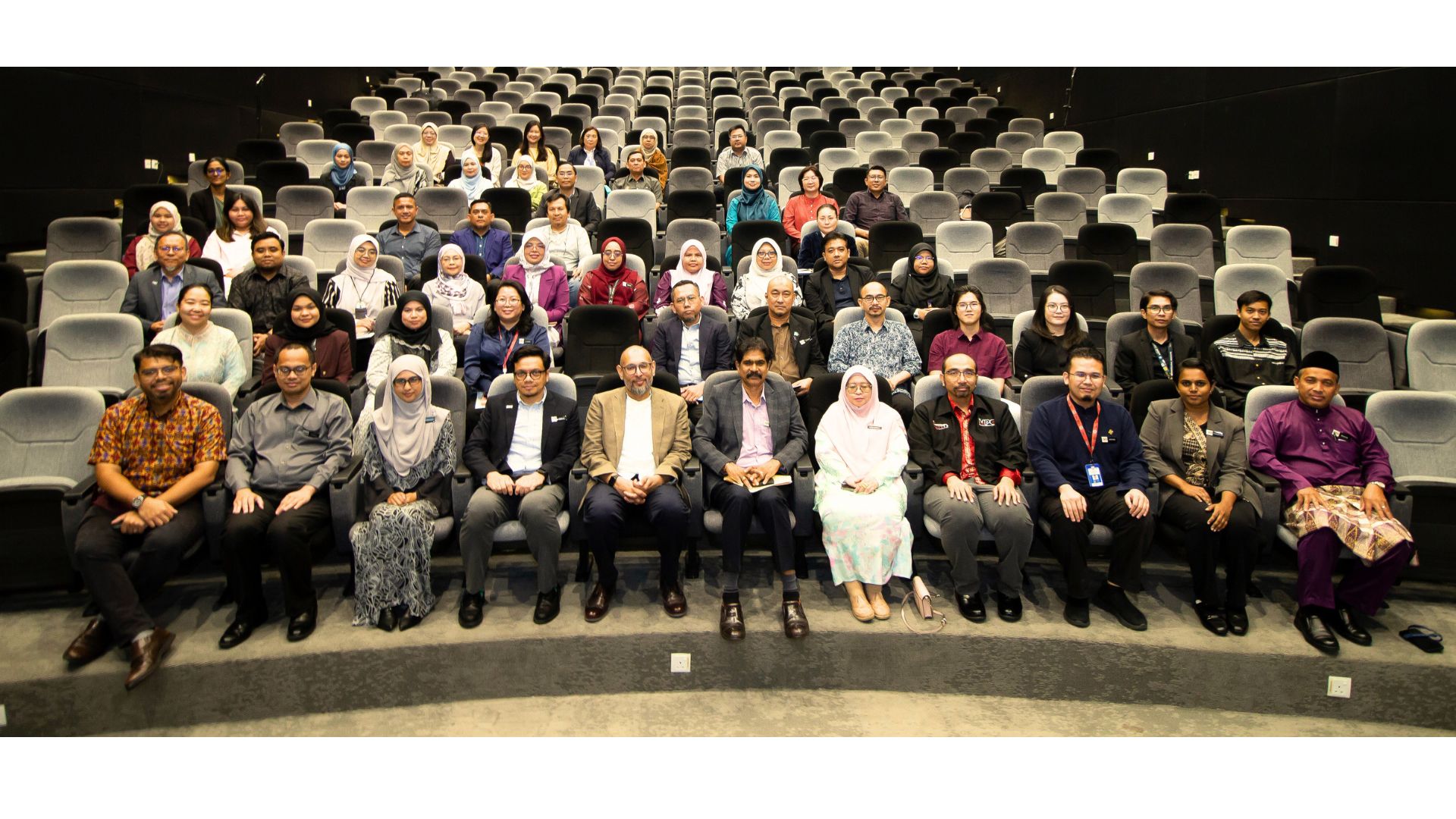
On 24 October 2025, we hosted the Networking Meeting on Behavioural Insights 2025, organised by the Malaysia Productivity Corporation (MPC). The event gathered BI practitioners from various ministries, agencies, and organisations to exchange ideas and strengthen collaboration. Participants included representatives from the Ministry of Economy, Ministry of Science, Technology and Innovation, Ministry of Education, Ministry of Home Affairs, the Office of the Secretary of the State Government, and several other agencies.
The session began with welcoming remarks by Ms. Norhasimah binti Ibrahim, Deputy Director of MPC, followed by Mr. Faisal Naru, Director of Think, Test, Do, who shared key insights on the challenges of applying BI in public policy. He emphasised that BI should not be applied for its own sake, but with a deep understanding of context and problem-solving.

A panel discussion then followed, featuring Ms. Norhasimah Ibrahim, Mr. Faisal Naru, and Dr. Manimaran Krishnan, Director of IHBR, who shared expert perspectives on BI implementation. The session was moderated by Dr. Saiful Adli bin Suhaimi, Head of the BI Unit, IHBR.
It was a fruitful exchange of knowledge and experience, building stronger BI collaboration across sectors in Malaysia.
The BI Unit IHBR
VISIT FROM INLAND REVENUE BOARD MALAYSIA (LHDNM) TO THE INSTITUTE FOR HEALTH BEHAVIOURAL RESEARCH
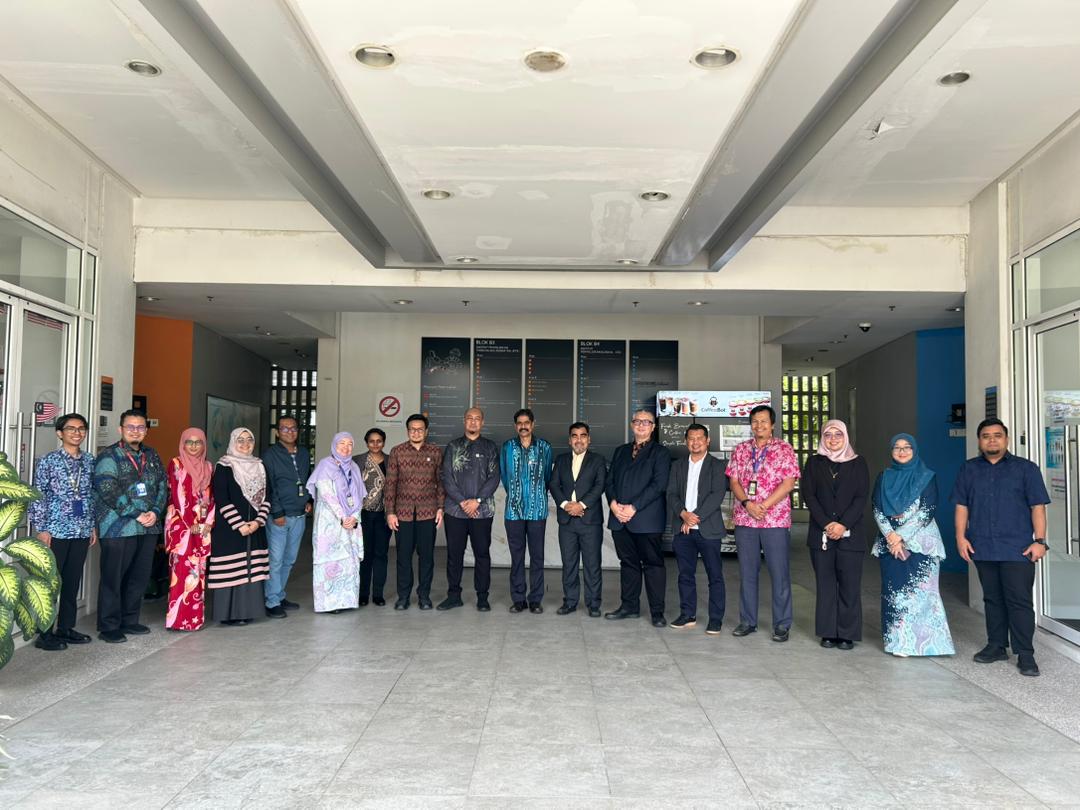
We recently welcomed a delegation from the Inland Revenue Board Malaysia (LHDNM) on a study visit to learn more about the operations and functions of the Behavioural Insights (BI) Unit at IHBR. The delegation was led by Datuk Mukti bin Mohd. Hassan, Director of the Tax Audit Operations Division, Tax Compliance Sector, together with several officers from LHDNM. The visit aimed to gain insights into how behavioural science approaches are applied within the health sector and explore opportunities to integrate similar strategies in enhancing tax compliance initiatives.
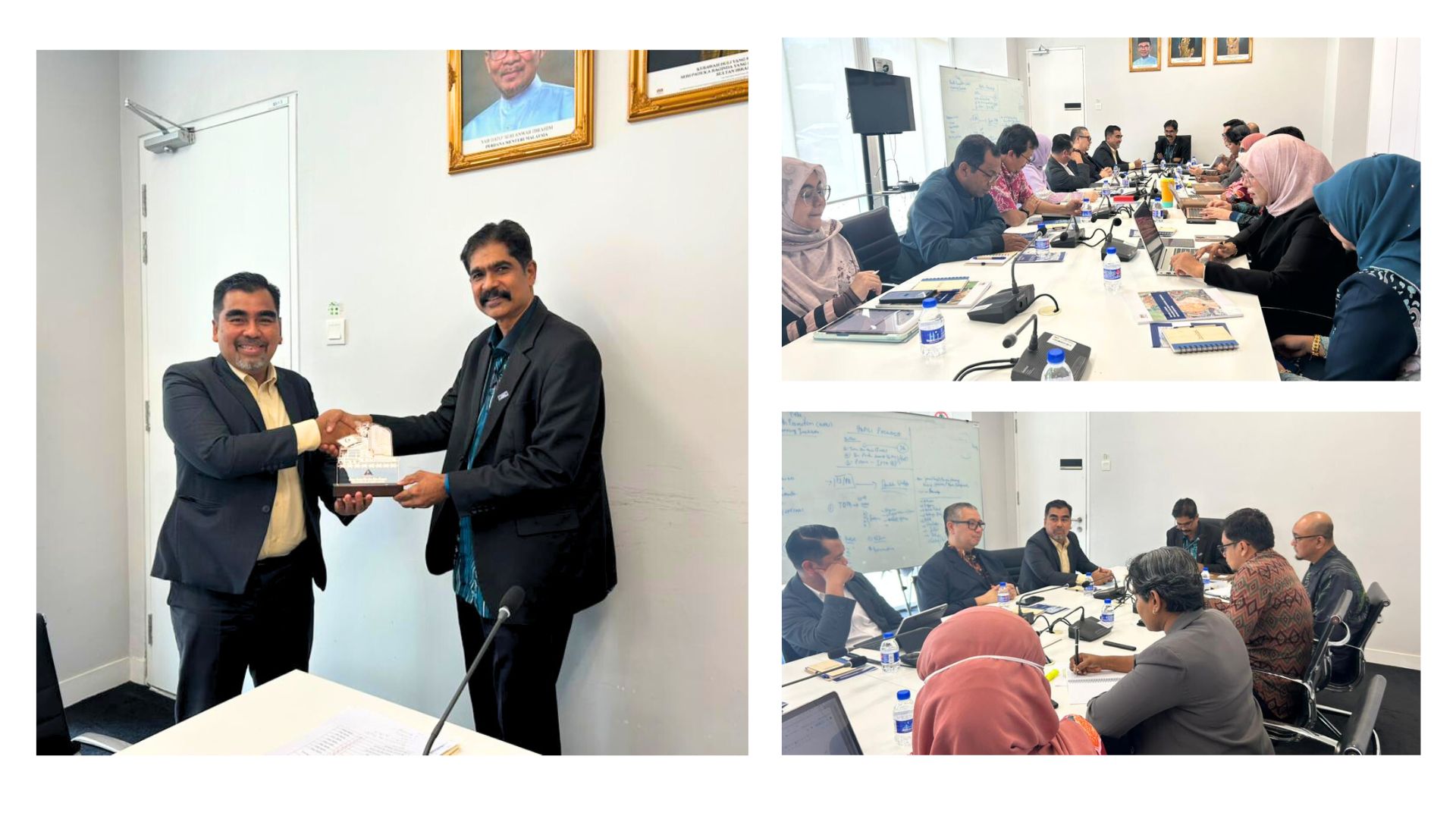
With the recent launch of the National Blueprint for Behavioural Insights in Health, LHDNM expressed keen interest in following IHBR’s footsteps to establish a similar initiative within the context of tax compliance. During the session, Dr. Saiful Adli shared its experience in implementing behavioural insights in public health interventions, including approaches in behavioural diagnosis, intervention design, and evaluation. Later, Pn. Gunasundari continue to share about several projects on behavioural insights in health. The engagement provided a valuable platform for both agencies to exchange knowledge and explore potential areas of collaboration in applying behavioural insights to improve public service delivery.
The visit concluded with an interactive discussion on future cooperation, reflecting a shared commitment to promoting evidence-based practices and behavioural science applications in supporting national development goals.
The BI Unit IHBR
THE LAUNCHING OF NATIONAL BLUEPRINT FOR BEHAVIOURAL INSIGHTS IN HEALTH

Finally, another important milestone has been achieved. The Ministry of Health Malaysia, in collaboration with the World Health Organization Representative Office for Malaysia, Brunei Darussalam, and Singapore launched the nation’s first National Blueprint for Behavioural Insights in Health on 25 September 2025. In line with the WHO Resolution on Behavioural Sciences for Better Health adopted in 2023, the Blueprint adopts a whole-of-government and whole-of-society approach, acknowledging that health is influenced not only by clinical care but also by socio-economic, commercial, and environmental determinants.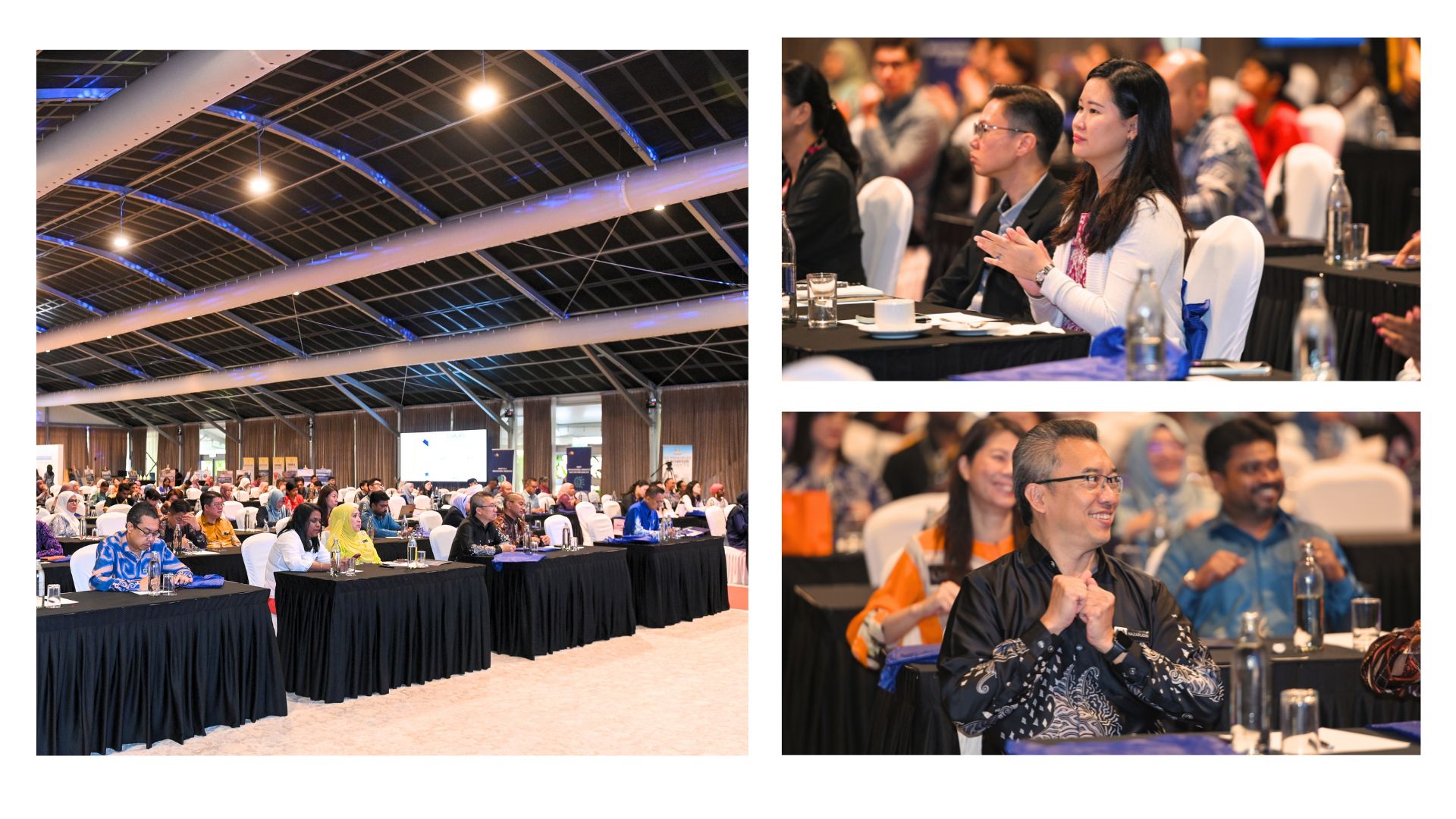
The National Blueprint for Behavioural Insights in Health represents a key step in placing behavioural science at the centre of Malaysia’s health transformation. More than a document, it is a roadmap for building a stronger and more equitable health system. Guided by the Thirteenth Malaysia Plan (2026–2030), it deepens understanding of health behaviours at individual and community levels, paving the way for strategies that are impactful, sustainable, and people-centred.
The event began with an opening address by Ms. Liyann Ooi, Technical Officer for Behavioural Science at the WHO Malaysia Country Office, who spoke on the global perspective of behavioural insights. This was followed by a pocket talk session on the application of behavioural sciences in real-world settings, featuring several key speakers: Dr. Saiful Adli bin Suhaimi, Head of the Behavioural Insights Unit, Institute for Health Behavioural Research, Ministry of Health Malaysia; Pn. Farah Salwa bt. Hj. Mustafa, Town Planner from PLAN Malaysia; Dr. Rutresh Rao Subramanyan, Assistant Medical Director at the National Cancer Society Malaysia; Dr. Lai Che Ching @ Abd. Latif, Head of the UMS-UNICEF C4D Research Unit, Universiti Malaysia Sabah; and Dr. Muhammad Fairuz Abdullah, Head of the Health Advocacy Department, ProtectHealth Corporation Sdn. Bhd.
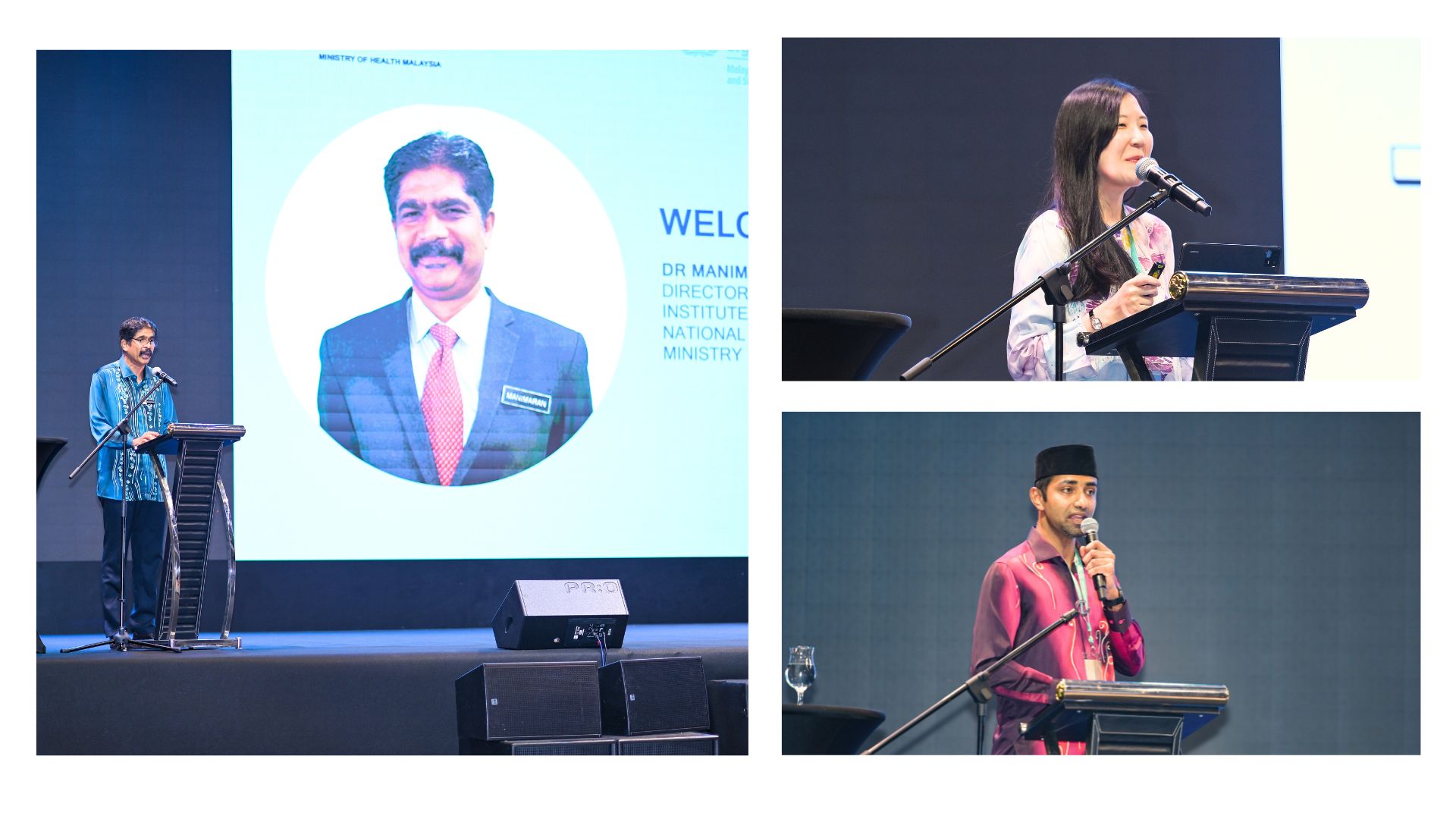
The launch was officiated by the Minister of Health Malaysia, and was also attended by Dr. Rabindra Abeyasinghe, WHO Representative to Malaysia, Brunei Darussalam, and Singapore; Datuk Dr. Mahathar bin Abd Wahab, Director-General of Health Malaysia; and Datuk Dr. Nor Fariza binti Ngah, Deputy Director-General of Health (Research and Technical Support).
The BI Unit IHBR
OUR JOURNEY INTO THE GLOBAL BEHAVIOURAL INSIGHTS NETWORK
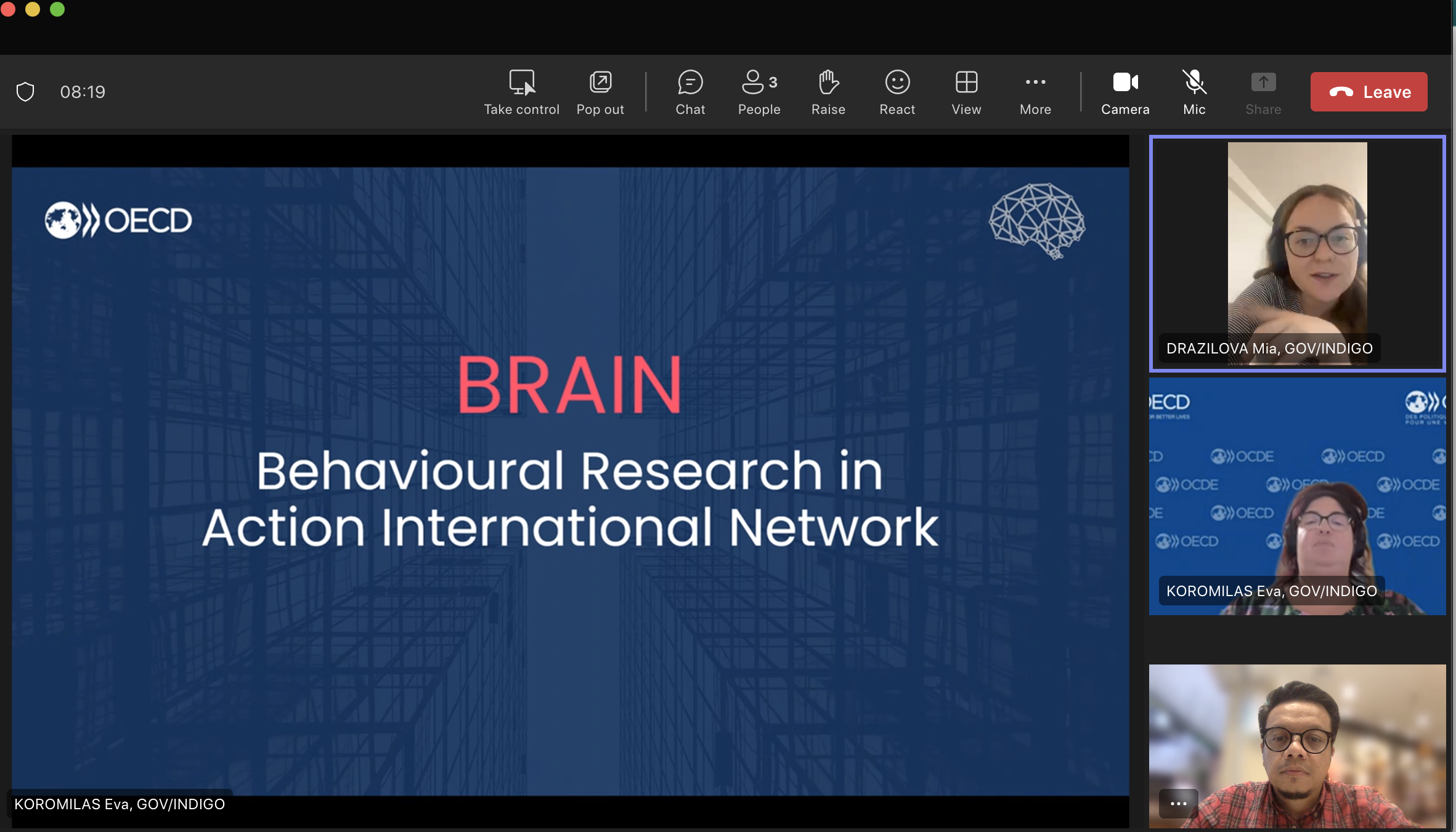
The BI Unit is always pleased to connect and collaborate with others who share an interest in behavioural insights. On 24 June 2025, Dr. Saiful had the honour of joining a virtual meeting with inspiring individuals from the OECD, led by Eva Koromilas, Project Lead for the Observatory of Public Sector Innovation (OPSI), OECD and Mia Drazilova, Behavioural Economics Advisor at the OECD. They introduced the Behavioural Research in Action International Network (BRAIN, a global community currently co-chaired by Canada and France.
BRAIN gathered over 100 government officials from more than 50 countries, both OECD members and non-members, all working on BI initiatives. The network promotes the exchange of best practices, peer learning, and collaboration across borders, building on the OECD’s longstanding support for the international BI community.
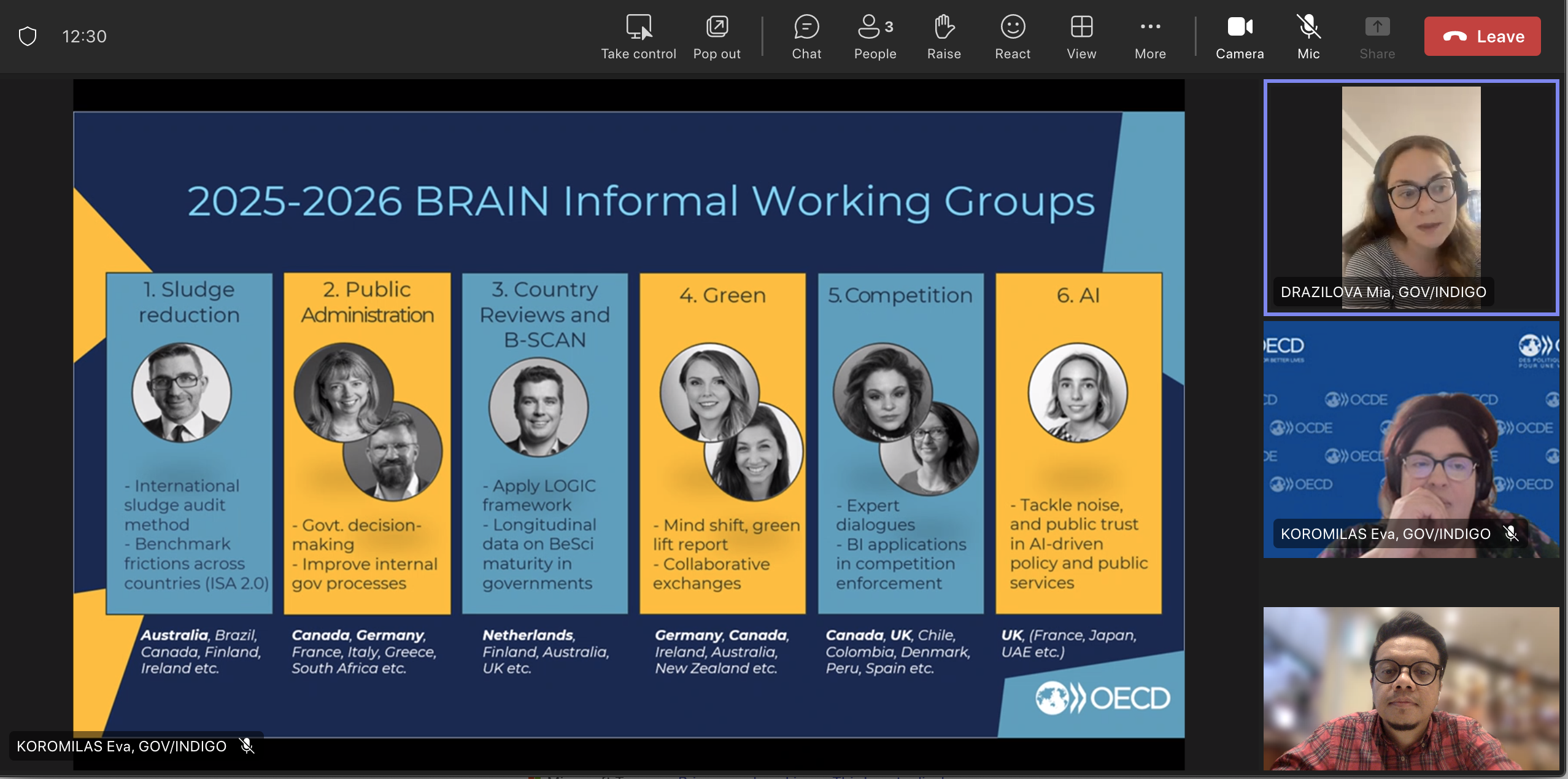
We expressed our interest in actively engaging with the BRAIN community and are excited about future opportunities to showcase our work in applying BI particularly in health within the Malaysian context. With optimism and enthusiasm, we also look forward to contributing to the broader global BI community and learning from one another to advance more people-centred, evidence-informed policies.
The BI Unit IHBR
WELCOMING UITM POSTGRADUATE STUDENTS TO IHBR: EXPLORING THE ROLE OF BEHAVIOURAL SCIENCE IN HEALTH
We were pleased to host a visit from the Faculty of Medicine, Universiti Teknologi MARA (UiTM) Sungai Buloh recently on 10th of June 2025. The delegation included 18 postgraduate students from the Master of Public Health (Semester 2) programme, accompanied by their senior lecturers, Dr. Aimi Nadira binti Mat Ruzlin and Dr. Dalila binti Roslan.
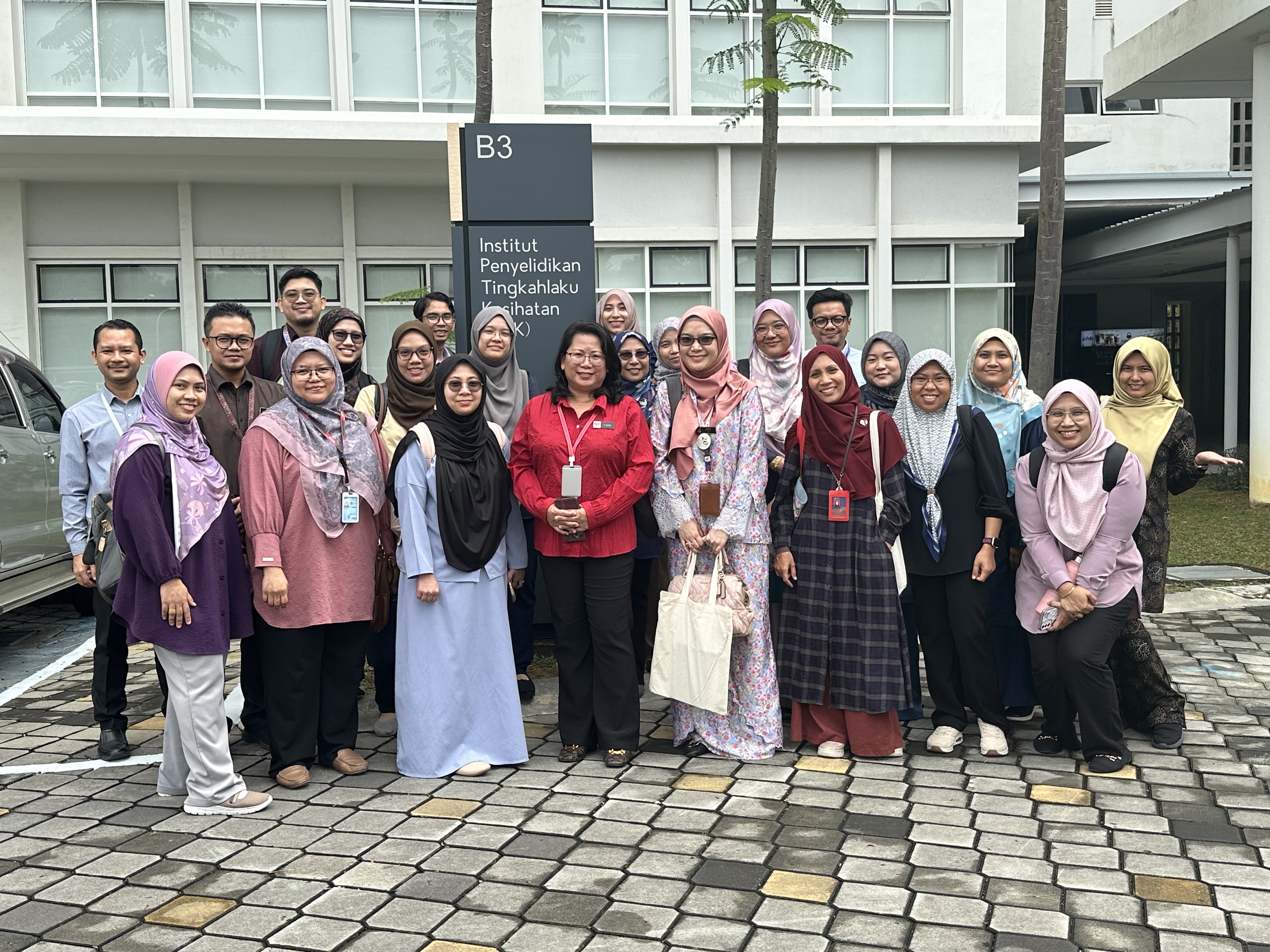
The visit began with a warm welcome by Dr. Manimaran Krishnan, Director of IHBR, who shared his thoughts on the importance of investing in behavioural science to improve health outcomes. He highlighted that while clinical models remain essential, many health problems such as unhealthy eating, physical inactivity, stress, and smoking are rooted in behaviour. Therefore, health professionals, especially those in clinical roles, should be equipped with behavioural science knowledge to address these underlying issues more effectively.

The BI Unit then introduced their work, covering the unit's background, current projects, and how behavioural insights are being applied within the health system. We hope this visit provided the students with new perspectives and valuable insights into how behavioural science can complement traditional healthcare approaches, shaping more effective and sustainable health interventions.
The BI Unit IHBR
THE CONFERENCE ON BEHAVIOURAL INSIGHTS IN POLICYMAKING FOR PRODUCTIVITY
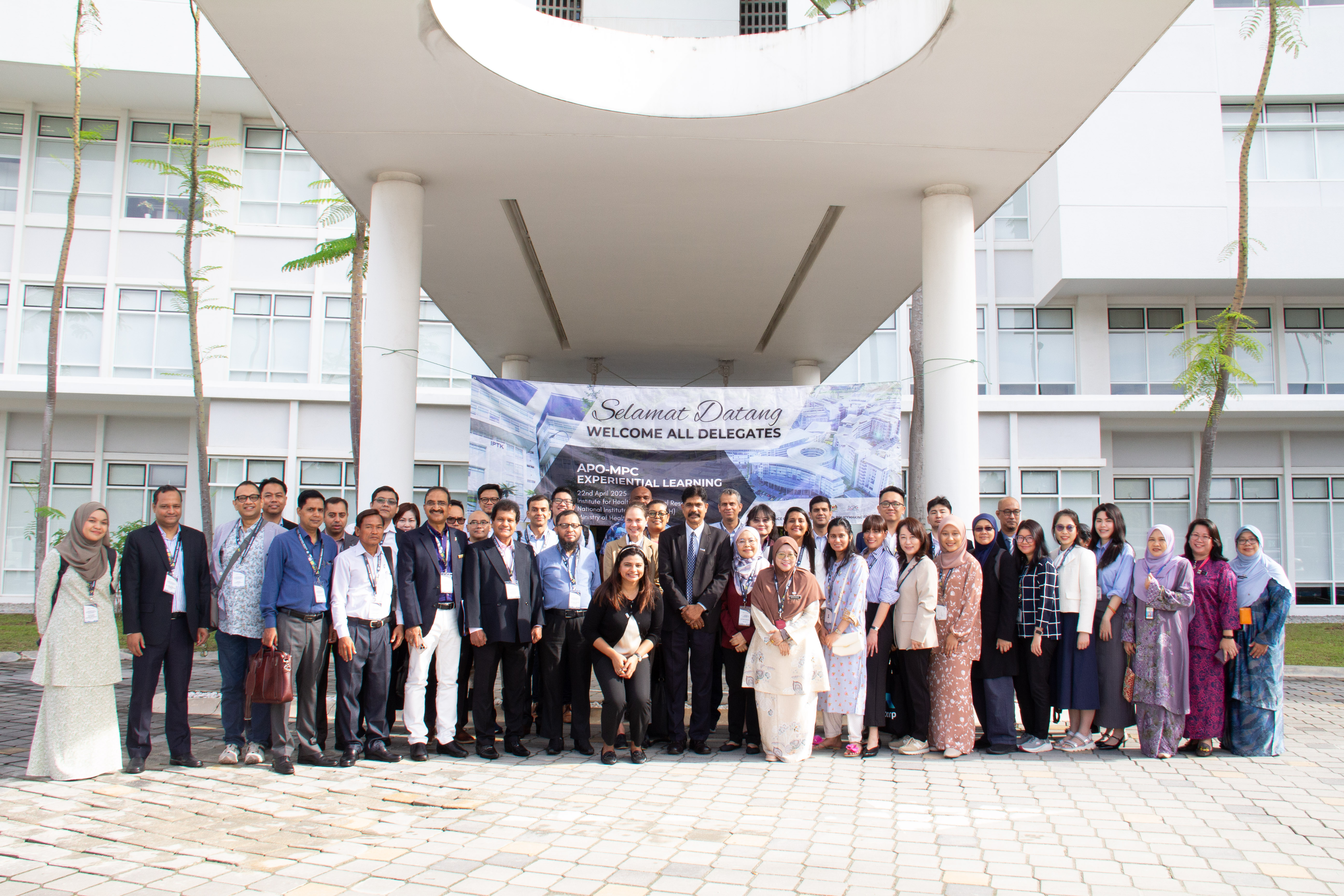
The Conference on Behavioural Insights in Policymaking for Productivity, organized by the Malaysian Productivity Corporation (MPC) in collaboration with the Asian Productivity Organization (APO), took place on April 21 and 22 at MATRADE, Kuala Lumpur. The event provided a platform for discussions on how behavioural science can be applied to policymaking to improve productivity, especially in the healthcare sector. Representatives from the Institute for Behavioural Health Research (IPTK) attended the conference to share their experience in using behavioural insights to support better health policies. One of the key moments was a presentation by Dr. Manimaran, Director of IPTK, who explained how behavioural insights could help improve public health strategies. His talk generated significant interest, with many participants eager to learn more about how behavioural science can lead to better policy decisions.
On the second day, IPTK hosted a visit from delegates representing more than 17 countries as part of an experiential learning session. During their visit, the team presented various behavioural insights projects that had been implemented within the Ministry of Health. The delegates showed great interest in these projects and actively engaged in discussions about their effectiveness and impact. The visit provided an opportunity to highlight key achievements and lessons learned from these initiatives, reinforcing the role of behavioural insights in shaping public policies, particularly in health.
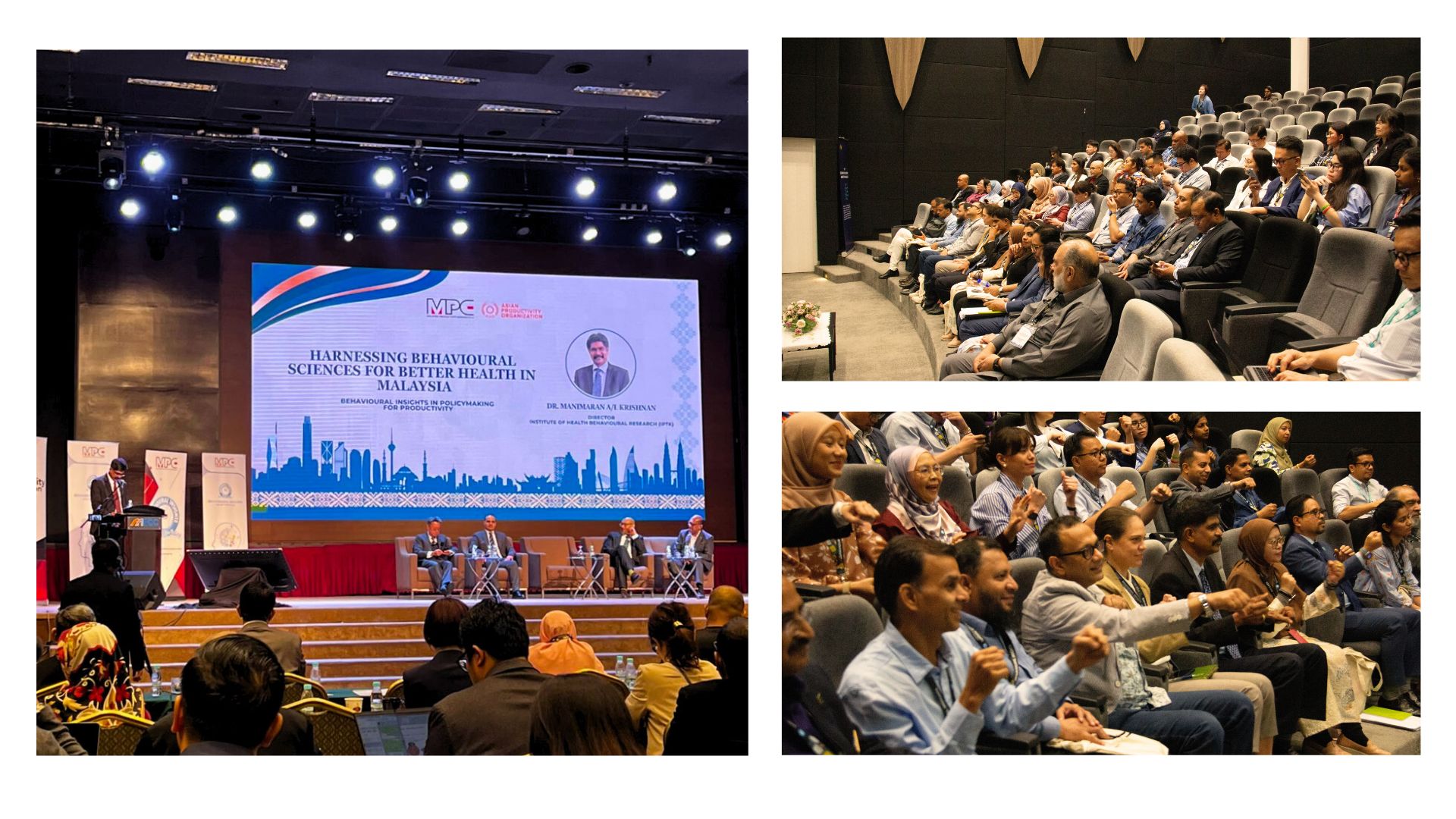
This conference demonstrated the increasing recognition of behavioural insights as a valuable tool in policymaking. The enthusiasm shown by APO and MPC toward IPTK’s work indicates strong potential for future collaborations in this field. As behavioural insights continue to influence policy and productivity strategies, this event has set the foundation for further advancements and more impactful initiatives.
The BI Unit IHBR
THE ESTABLISHMENT OF THE WHO BEHAVIOURAL INSIGHTS GLOSSARY
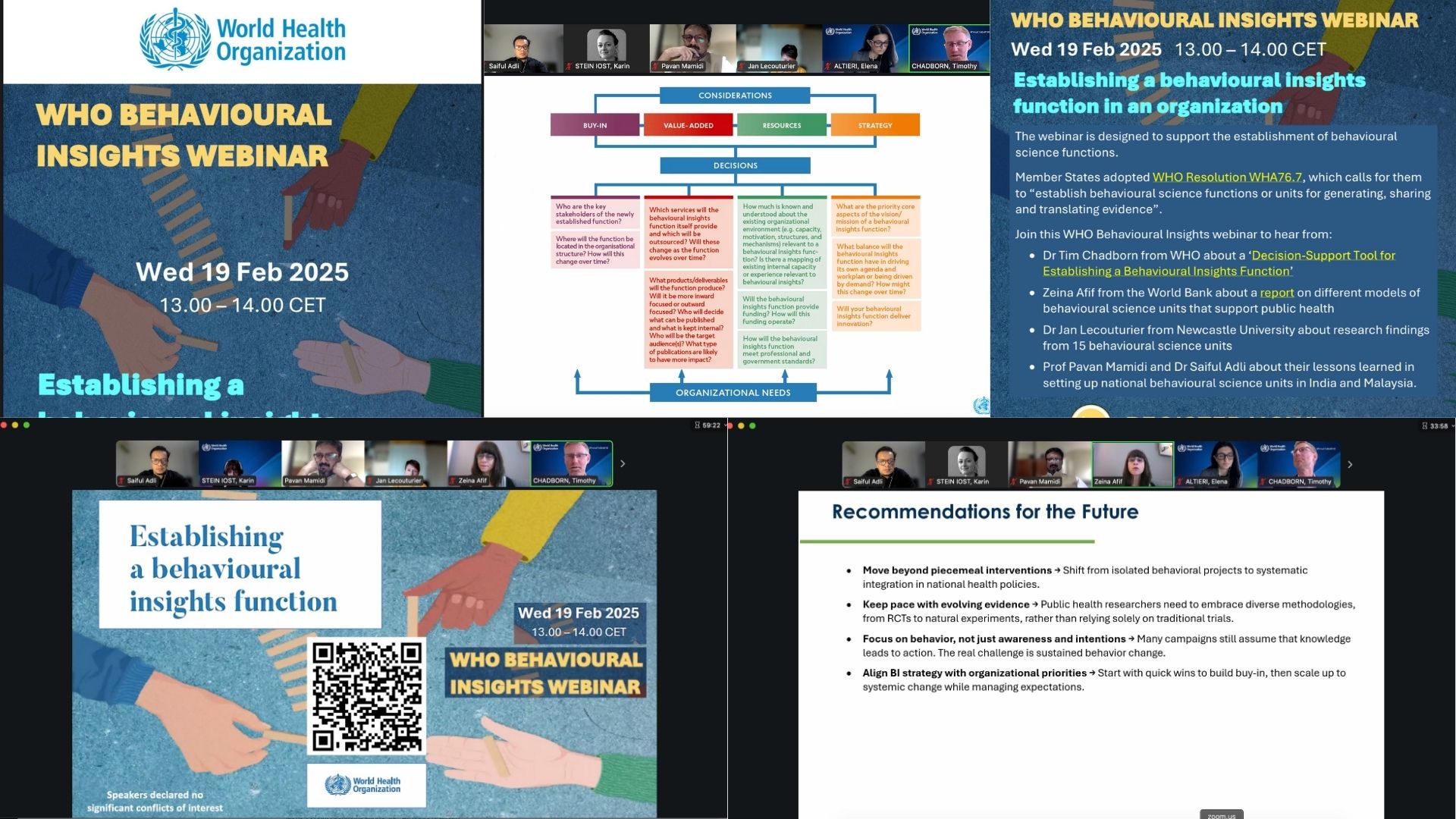
On 26 th of February 2005, BI Unit was invited to participate in an online focus group discussion on the development of the WHO Behavioural Insights Glossary. The session aimed to gather insights to better understand user needs, ensuring that the final glossary is accessible and valuable for WHO staff and other end users worldwide. This glossary is being developed by the WHO BI Unit in collaboration with University College London to enhance clarity and cooperation in the application of behavioural insights in public health. The discussion was moderated by Micaela Santili from University College London.
The BI Unit IHBR
